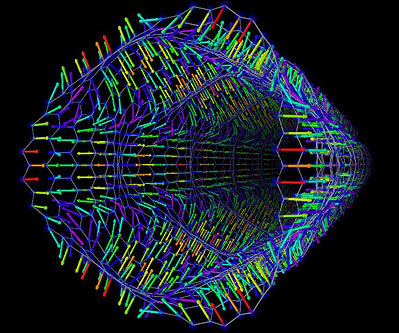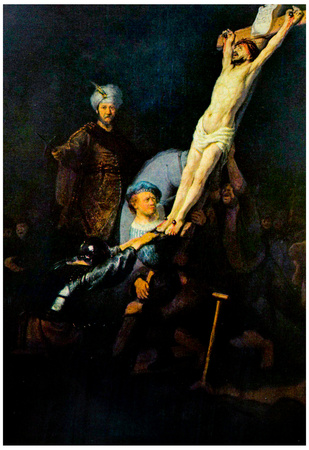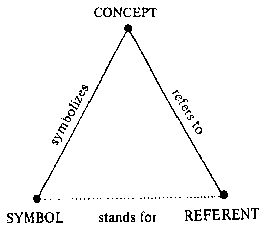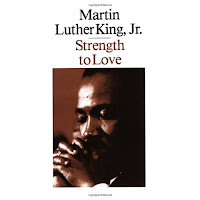Taking a Stab at Abortion and Capital Punishment
by G J Gillespie

HAVE YOU EVER been at the beach and noticed when the tide changes? The water ebbs out for a few hours then a tipping point occurs and it begins to flow in. As we mature we may notice tide changes in our lives as well.
A sea change occurred for me in November of 1985. I think of it every year. The shifts were occurring before then to be sure. I had just completed a Masters thesis on abortion rhetoric. It examined metaphors on both sides of the issue. It was well received by my committee.
A social movement study of abortion was a topic suggested by an advisor. I was determined to treat the issue fairly and with open mind and began heavy research. After reading hundreds of articles and dozens of books on both sides of the issue my desire for neutrality crumbled. The stories, statistics and mounting data drew me to the conclusion that mass abortion was a social evil.
It was then that I began to doubt my liberal outlook. My professors, role models and politicians who I had admired were defending aborting the lives of unborn children as a civil right. Now I was sure that they were wrong. I remember thinking: if the liberals are wrong about abortion, maybe they are wrong about Nicaragua? Maybe they are wrong about economics?
In the years previous, I had studied feminism and made fun of President Reagan. For some reason I wanted to gain the favor of liberal professors mentoring me. I certainly didn't want to let them think that just because I held to Christianity meant I ranked among the despised conservatives. I wanted to be cool. And enlightened. For my first presidential election in 1984 I chose to support liberal third party candidate John Anderson. I told surprised friends that I disagreed with him on some issues, but didn't like Carter and couldn't vote for Reagan.
Then the tipping point occurred. Newly hired at my dream job to teach at a small college near Seattle I received a phone call with bad news. My close friend Jeff Putnam, who I had been corresponding with while he lived in Mexico City with his sister and brother-in-law, had been murdered. I cried on the floor of my apartment, contemplating all the joys of life that Jeff would miss.
Grief was like entering an encompassing black abyss. It didn't seem real that such a good, vivacious person could suddenly be no more. Jeff who kept a notebook of his prayers so that he might marvel at checking off the answers. Jeff who had written about how disturbed he was to see poverty. He daily fed peanut butter sandwiches to two neighborhood boys, Jose and Lucio, because he couldn't tolerate living next to hungry children.
Jeff was out walking at 11:30 PM on November 9th (we don't know why) when he was confronted by a thief who stabbed him deeply in the abdomen. When the robber discovered that Jeff didn't have any money or wrist watch, he took the only possession of value he could find. His pair of glasses. Laying on the concrete sidewalk, covered in blood and in terrible pain, Jeff was able to give a passerby the phone number of his brother-in-law who reached his side in minutes. An ambulance was called. But, he died on the street at 12:15 AM. He called out for his mother as his last words. "Mom, mom."
Jeff and I shared a similar world view. We were idealists. Typical sophomores (literally "wise fools"). Outraged by the injustices and materialism of our elders, we spoke and wrote about creating a better world. We agreed with author G. K. Chesterton who said: "Christianity has not been tried and found wanting; it has been found difficult and not tried." If only we could follow the example of Christ. He accepted death on the cross rather than fight back. Shouldn't we? We became dorm room pacifists. No true follower in Jesus Christ, we reasoned, would go to war. He called us to take up our cross and follow him. Jesus wouldn't want us to resort to violence.
Based on the result of my graduate studies, I confided with him my new zeal against abortion. We laughed at the list of names I collected for the fetus used to justify "terminating" the life of the unborn. The dehumanizing labels sounded familiar to other acts of historic genocide.
My list of euphemisms straight from the pages of pro-choice literature included: "tissue, fetal matter, fetus, embryo, parasite, the feto-placental unit, mass of cells, fetal wastage, ejaculated-leavings-swelling-up-in-utero and -- my favorite -- the Products of Conception or POC for short. Jeff even had a tee shirt made for me as a gift for when I attended pro-life rallies. The back read: "Product of Conception." I loved wearing that shirt.
We desired to be consistent. So in addition to the wrong of abortion we equally objected to capital punishment as well. We concluded that capital punishment was a barbaric act of violence. It was wrong to kill unborn babies. It was wrong to kill criminals. We took as wisdom slogans like "Why should we kill people who kill people to show people that we shouldn't kill people?"
I spent a lot of time with Jeff's family in the weeks after the murder and even had the privilege of speaking at the funeral. None of us, as far as I knew, desired that the killer be executed. We had learned that the murderer had been caught and was in prison. We were glad that he was being punished. I don't know if he was executed.
We were simply stunned by the loss. One afternoon, I agreed to help his mother Billy clean up his room. It was strange to put familiar items of clothing that he wore into boxes for storage or for giving away. I was given some boxes of his writings -- notebooks of essays, poems and musings -- to take home as a caretaker.
We never thought that we would know the pain of families and friends of murder victims. But, we were not alone. That year 18,960 other American families also received the bad news that changed their lives forever. 18,960! 11,11980
Philosopher Emmanuel Kant argued that the only just punishment for taking a life is execution by the state. Any other punishment is of less value than the life taken, so to apply the lesser penalty is unfair. He may have been right. To execute a killer sends the message that murder is the ultimate crime because each human life is of utmost value. Capital punishment then does not devalue human life -- it upholds it.
Some proponents of capital punishment argue that a greater number of murderers should receive the ultimate punishment. Opponents take the opposite view saying that the punishment can never be fairly applied and should be abandoned entirely.
After thinking about these issues for a while now, my take is that both extremes are in error. Maybe we shouldn't execute every killer, but there are a few cases when capital punishment is most certainly just. (It doesn't take a lot of research to learn about these cases). While capital punishment and abortion both take a life, the two are hardly equivalent.
Who are Innocent?
To clarify my position let me ask two questions: Who are the most innocent members of a society and who are the most guilty?
It would seem that by far the most innocent members of society are those people who are incapable of defending or taking care of themselves. These people cannot be held accountable for wrong doing based on a lack of physical power. Unborn children, babies, young children, and the mentally handicapped. These people have done nothing at all worthy of guilt. They are unstained, morally pure and blameless.
Now who are most guilty among us?
Well, that would be murderers, especially those guilty of premeditated murder in the first degree. Here a criminal did not act in a moment of passion, but deliberately planned to kill their victim and to escape detection. Sometimes murderers torture their victims. There are cases that include rape, torture then murder.
While we would like to believe that anyone who commits a viscious murder is insane, as is certainly the case at times, there are many examples when murders are carried out by people who are not technically insane, but are acting with the full resources of a sound mind.
While opponents of capital punishment argue that the possibility of executing an innocent person is justification for banning the punishment altogether, DNA evidence now makes proof of guilt extremely reliable.
And there are cases when murderers admit that they committed the crime. In cases when DNA or other evidence is ambiguous, the death penalty is rarely applied. In the vast majority of executions in the United States there is no doubt of the murderer's guilt.
In fact, only about one percent of people who commit murder are executed. Our society reserves execution for the very worst cases. It is reasonable to defend that system.
If capital punishment is unjustly applied, or is the result of racism, that is an argument against the justice system, not capital punishment itself. It would be like saying that since police radar is inaccurate 30 percent of the time we should refrain from giving anyone a ticket. No, that is an argument to fix the radar detectors. In the same way if a court is corrupt or racist, we need to correct the corruption and ban the racism.
If we haven't heard stories of horrendous murder crimes that cry out for the most severe punishment possible we are either uninformed or naive to the extent of evil in our world. To refuse to face the reality of evil is a serious flaw of imagination. Adam Lanza murdered 20 children, ages 5 to 10, in their Connecticut school classroom. (It is true that he was mentally ill, but an example of evil is harder to find.) Timothy Mc Veigh killed hundreds -- including a day care full of children -- in the Oklahoma City bombing. Ted Bundy sexually tortured up to 100 women before killing them. There are cannibal murderers. Child murderers. Murderers who are imprisoned then released only to kill again.
While most murderers are rightly given life in prison as punishment, there are cases of murderers given prison terms who continue to kill -- fellow prisoners or guards or others when released early or while on parole.
Society has a right to protect citizens from these extreme killers. In fact, not to prosecute -- and in some cases execute -- murderers would be immoral. Just as most people fail to object to the right of police to use deadly force to stop violence against citizens or the right of our nation to send in the military to kill an enemy attempting to cause wide spread death and destruction, so capital punishment is moral.
Often the existence of capital punishment on the books is used as a bargaining chip to elicit those complicit in a murder case to cooperate and turn in accomplices. "If you cooperate and help us solve this crime, we will not press for the death penalty." With out this chip, many murder crimes would go unsolved, adding more pain to families of those killed.
 |
| Life sized model of a fetus at 12 weeks |
Why do some people have more compassion for serial murderers than they do for innocent unborn children? It is illegal to cruelly kill a kitten or destroy the eggs of an endangered bird. Yet it is legal to destroy unborn children for any reason that a woman chooses. Women may be pressured into the decision by boyfriend, parents or ideologically driven counselors and later come to regret the choice.
Founding feminists knew that abortion is a false solution for women. Susan Anthony, in her publication The Revolution, observed:

"Guilty? Yes. No matter what the motive, love of ease, or a desire to save from suffering the unborn innocent, the woman is awfully guilty who commits the deed. It will burden her conscience in life, it will burden her soul in death; But oh, thrice guilty is he who drove her to the desperation which impelled her to the crime!"
(Anthony, Susan, The Revolution, 4 (1):4 July 8, 1869)
In response to the pro choice chant, "Not the church, not the state, let women decide their fate!", pro-lifers shout: "Not the woman, not the state, let unborn children decide their fate!"
Where one group sees a choice, the other sees a child. When it comes down to a choice or a child, I will side with the child. Seen this way opposition to abortion must become a civil imperative.
It is a biological fact that the human fetus is not part of the woman's body, since it has its own set of organs and unique DNA and sometimes a different sex or blood type. To claim otherwise is to deny reality.
 The unborn child is as human as you or I and in a just society would receive full rights as a person. We know that the worst crimes of history -- slavery, genocide, death camps -- were based on the premise that there are some human beings who are not fully human and thus expendable. Labeling the pre-born as non-persons in order to justify killing them is the crime of our generation. No, the pre-born child is human. These fellow human beings are completely helpless and worthy of our compassion.
The unborn child is as human as you or I and in a just society would receive full rights as a person. We know that the worst crimes of history -- slavery, genocide, death camps -- were based on the premise that there are some human beings who are not fully human and thus expendable. Labeling the pre-born as non-persons in order to justify killing them is the crime of our generation. No, the pre-born child is human. These fellow human beings are completely helpless and worthy of our compassion. If a woman is in a difficult place and feels abortion is the only solution, we need to help her -- as the thousands of pregnancy help centers operated by abortion opponents across the nation tirelessly provide.
So, convicted murderers are guilty and unborn children are innocent. It is wrong to kill the innocent and it is right to punish the guilty. Therefor abortion of unborn children should be illegal in the vast majority of cases, just as capital punishment of killers should be legal in extreme cases.
I could be wrong. Perhaps another sea change of opinion is in store for me someday. If my friend Jeff were around, I sure would like to ask him what he thinks. I miss those discussions.
___________________________________
Postscript: In this personal essay I share why I became a conservative.
Now I see everything though a different filter. Human dignity and freedom is harder to defend than we might think.
Ronald Reagan said it best in this 1983 article which I invite you to read: Abortion and the Conscience of the Nation.
Organizations Focused on Capital Punishment




%20-%20IMG_2660.jpg)





/images/scan0004.jpg)





